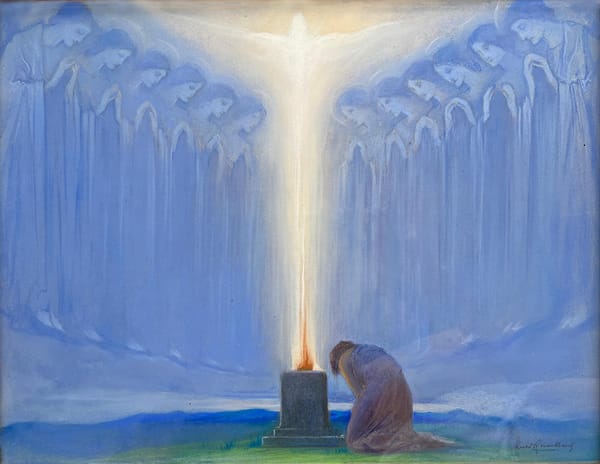
Rumi
Rumi and the Ocean of Nonexistence
Rumi's most cardinal doctrine is the invitation of his disciples to a nonexistence which, not only is above any form of being, but constitutes our final end and teleology.

Rumi
Rumi's most cardinal doctrine is the invitation of his disciples to a nonexistence which, not only is above any form of being, but constitutes our final end and teleology.

metaphysics
While it is incomprehensible to our limited minds, it is rationally possible for God to be at once one and two, one and three, alive and dead in the grave.

Genesis
A careful reading of Genesis reveals a curious discrepancy between Yahweh's injunction and how Eve relates it whilst conversing with the Serpent.

To God belong the East and the West; withersoever you turn, there is the Face of God; God is All-embracing, All-knowing. (The Holy Quran, translated by A.J. Arberry, Surah Al-Baqarah Verse 115) Beauty is the word that shall be our first. Beauty is the last thing which the thinking

One of the most darling and devastating creatures of the Old Testament is Leviathan. He is mentioned more than six times by different names and a number of times without a name. Leviathan is depicted as an ultra powerful sea serpent of some sort. The creature is often almost mentioned

Only that which we can never possess can we never lose.

In a riddle whose answer is chess, what is the only word that is prohibited? —Jorge Luis Borges, “the Garden of the Forking Paths”1 The Japanese philosopher and professor of Islamic studies Toshihiko Izutsu delivered a riveting public lecture at the Fifth East-West Philosophers’ Conference in Hawaii in June

Whatever is virtuous in light of our divine life in Christ must ever expect, with no exception or suspense, what is imminent.

We tend to grow pale and tremble when we come to recognize that the Eternal Spirit of Love is gradually removing all sense of self-importance from us; but how quickly we forget that it is self-importance that's being removed – not our actual importance. For this self-conception is as

Yannaras
"That singularity is empirically and immediately accessible to us, while remaining objectively indeterminate, utopian."

In the opening chapter of East of Eden, John Steinbeck artfully (and rather wistfully) reports his take on the spiritual consciousness of American pioneers in the late 19th-century – many of them first- and second-generation immigrants, and therefore migrants twice over. Writing specifically about those families who settled in the Salinas

Why has the future tense come to displace the present in certain renditions of the Words of Institution? “This is my body which will be given up for you”? Weak tea, I say. Count me firmly in the camp of “This is my body which is given up (or, better,